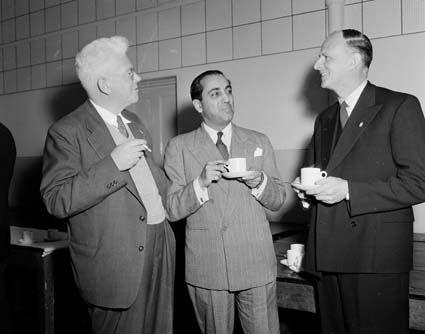Anyone familiar with nuclear weapons will know that the ‘Manhattan Project’ was the codename for the then-secret operation to create working atomic weapons. Mark Oliphant was an Australian scientist who played a key role in the development of nuclear weapons, helping with the first experimental nuclear fusion demonstration.
During World War 2, Great Britain started out as more concerned with creating an atomic bomb that the United States as they had more urgency to win the war. Mark Oliphant is one of the teams of people who helped to push the plan to create a bomb into motion for the United States.
Mark met with the Uranium Committee in 1941 in New York. One member of the committee cites that Oliphant came to the meeting an abruptly spoke about the need for a bomb to be created and that the gathered scientists should be entirely focused on creating a bomb that could end the war as quickly as possible. He said that the bomb was more expensive than what Britain could afford, and thus the responsibility fell on the United States to manufacturer it. Some have said that if circumstances were different, Mark Oliphant would be given a medal for being a meddling foreigner who pushed for the creation of the bomb that made America a superpower.
Despite his role in the creation of atomic weapons, Mark was disturbed by their destructive impact when he heard about the use of the weapons against Japan. He had said that he felt a sense of perverse pride due to the fact that the bomb worked but was appalled by what it did to human beings. He later became a critic of nuclear weapons and supported control over international proliferation of nuclear weapons following World War 2.


